These Are the Best (and Sometimes Most Gutting) ‘BoJack Horseman’ Episodes
"Mr. Blue, don't hold your head so low that you can't see the sky."
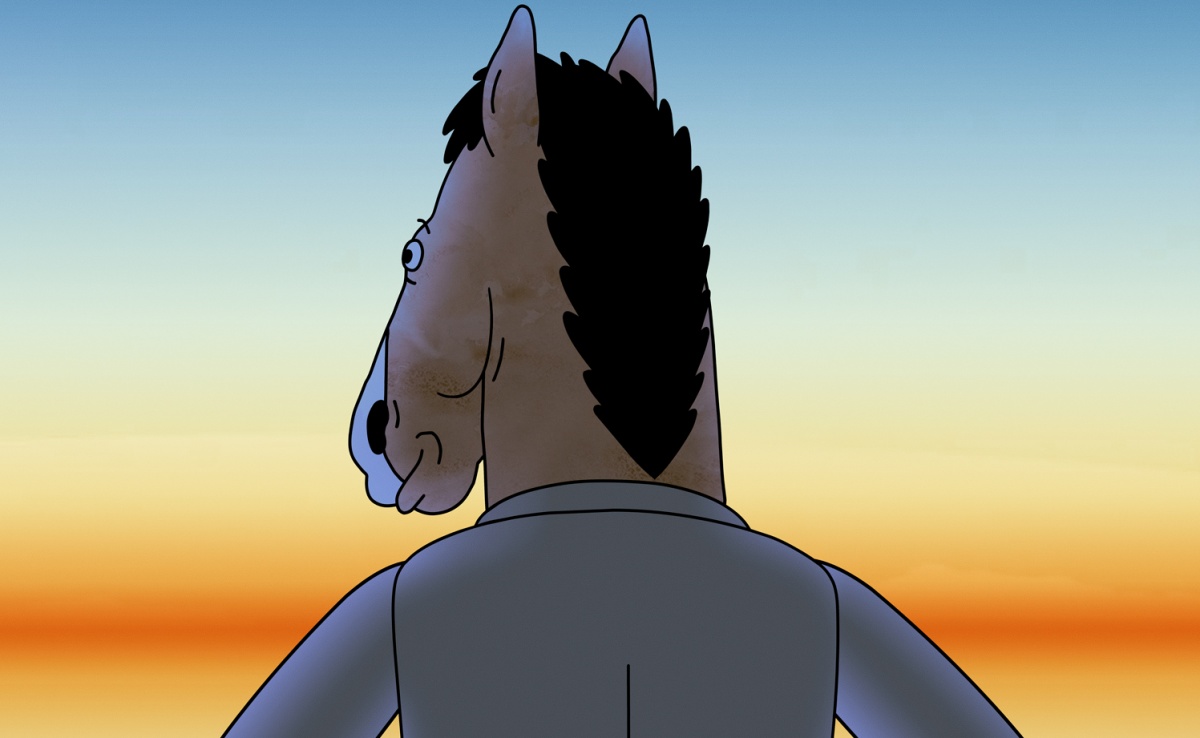
It’s hard to believe that two years have passed since BoJack Horseman officially ended. The show is so timeless in its themes, it feels like it came from a completely different era. But that’s why it’s such a special show, and why it’s deserved all the acclaim it’s gotten: it’s astonishingly human, and as a result, unexpectedly comforting.
That said, it’s a…well, it’s kind of exhausting to rewatch, considering all the heavy subject matter. So whether you’re seeking a quick guide for a quick rewatch, or you just want a trip down memory lane, here’s a list of the best BoJack episodes, going by order of release.
The Telescope
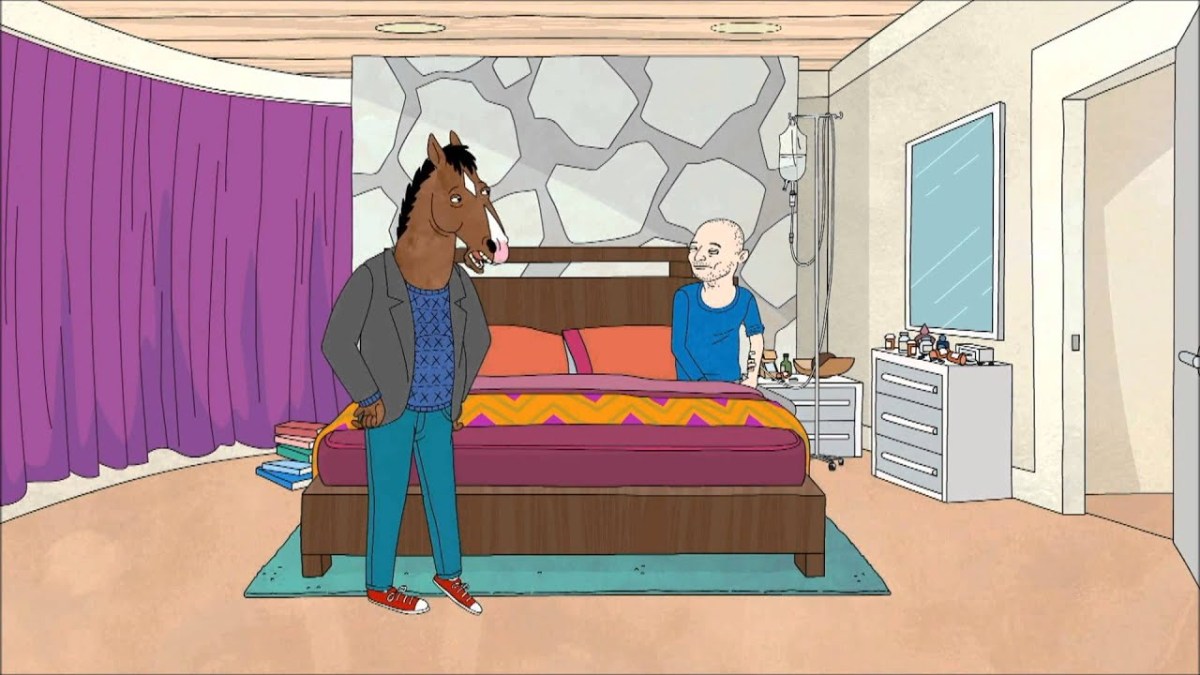
Season 1 has so many tonal shifts and introductory plot threads, it’s difficult to whittle down its best episodes. But ultimately, this is a show about our woeful anti-hero, and “The Telescope”—which really makes it clear that this isn’t a show that’ll shy away from the consequences of one’s sh*tty behavior.
BoJack betrayed his friend Herb beyond belief, and although he meant to do well by visiting him, Herb had every right to rebuke his meek apologies. Many critics claim that the previous episode, “Say Anything,” is what marked the series’ descent into seriousness, but I always believed that this one cemented that fact the most.
Downer Ending
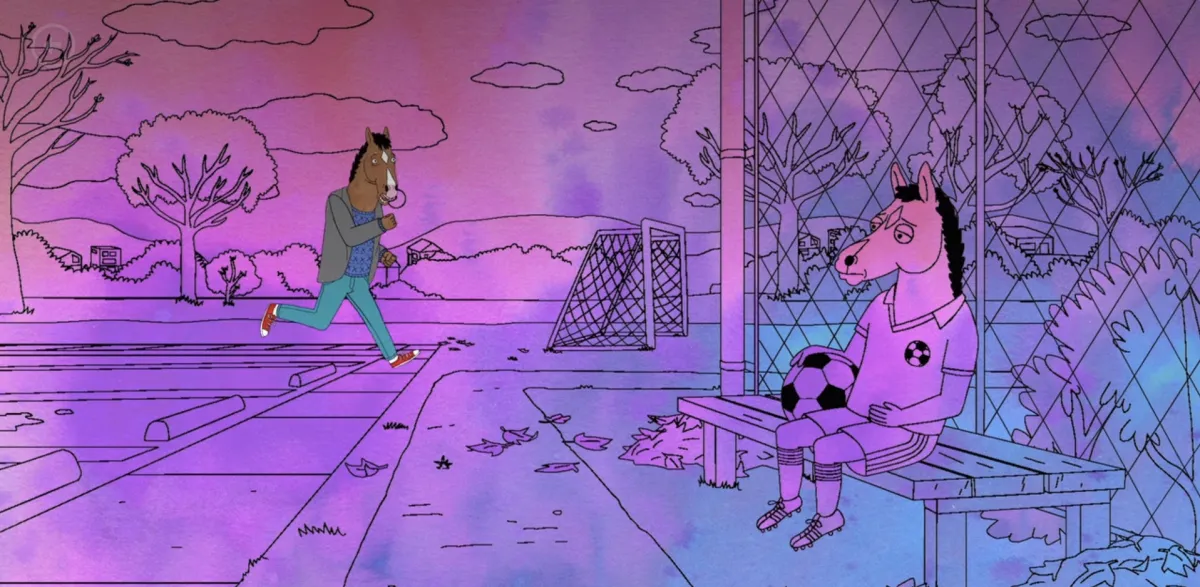
“Diane, I need you to tell me that it’s not too late. I need you to tell me that I’m a good person.”
The first season does a great job establishing what is arguably BoJack’s most important relationship: his tumultuous friendship with Diane. This scene is the heartbreaking conclusion of a wild and self-destructive bender, the result of reading her memoir of him and realizing what she truly thinks of him.
The midsection of this episode, however, is even more heartbreaking, as BoJack hallucinates an alternate-reality where he and Charlotte, the one who got away, escape Hollywoo and go on to live a happy, domestic life. It really, truly is a downer.
But hey, it did introduce a lot of viewers to Death Grips, which…I guess could be a good thing or a bad thing?
Escape From L.A.
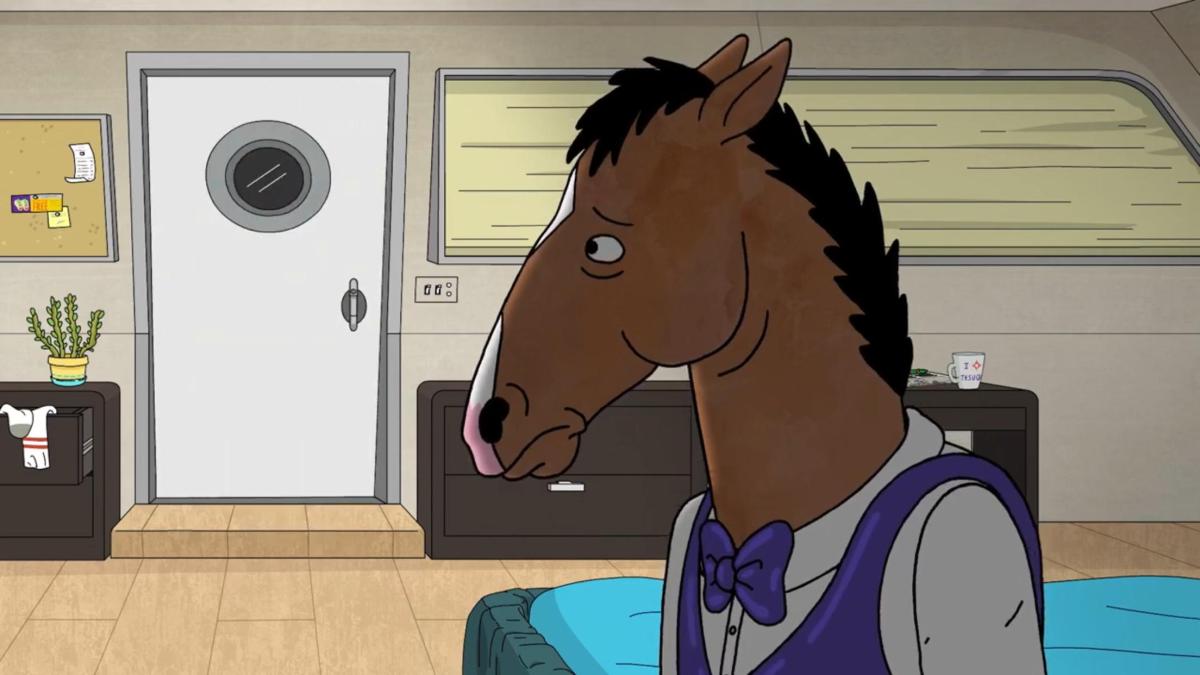
Oh, boy.
Oh, boy oh boy.
Okay. Okay. So we do love this episode for a glimpse into what BoJack’s life could be life if he abandoned the Hollywoo lifestyle to live a simpler, more communal existence.
What we don’t love is how he tries to cope with the sting of rejection, by way of the underage daughter of his old flame.
It’s such a difficult episode to watch, because you get this uneasy feeling that BoJack is going to flub up yet another good thing, and then the bastard proves you right. All you want at this point in the series is for BJ to catch a break. But this episode is, for many viewers, the first one that makes you ask, “Does he deserve a break?”
Fish Out Of Water
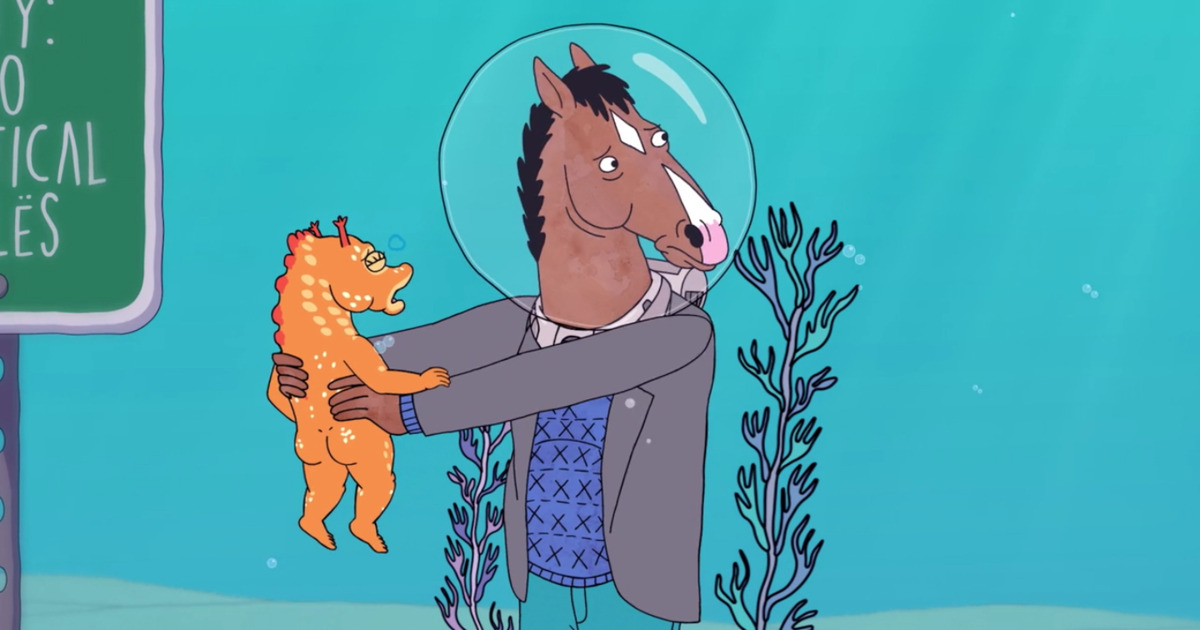
Many shows try to do at least one experimental episode, where they diverge from their typical narrative devices and get a little funky with it. Few succeed. Fewer still succeed with profundity, like this episode does in spades.
It’s beautiful to look at, it’s fun to watch, it maintains the series’ traditional sense of cartoon silliness without being over the top, and it’s incredibly moving while relatively simple plot-wise. I don’t know, there’s just some kinda magic to this episode that can’t properly be put into words. I suppose it’s fitting that they barely speak, if at all, throughout the whole thing.
That’s Too Much, Man!
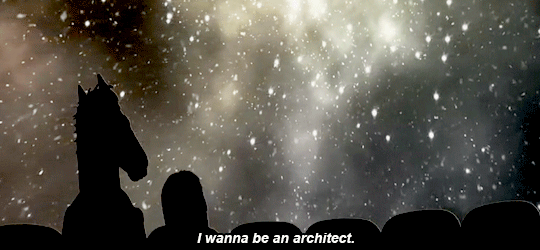
*deep breath*
Okay.
I don’t know. It’s a good episode that deserves to be on this list, but I’d say it’s the second most difficult to watch, second only to the episode where BJ almost dies. Sarah-Lynn deserved better. Penny deserved better. And what’s heartbreaking is knowing that BoJack contributed so heavily to their pain, yet we still continue to root for him.
It’s hard to keep doing so after this episode.
The Old Sugarman Place
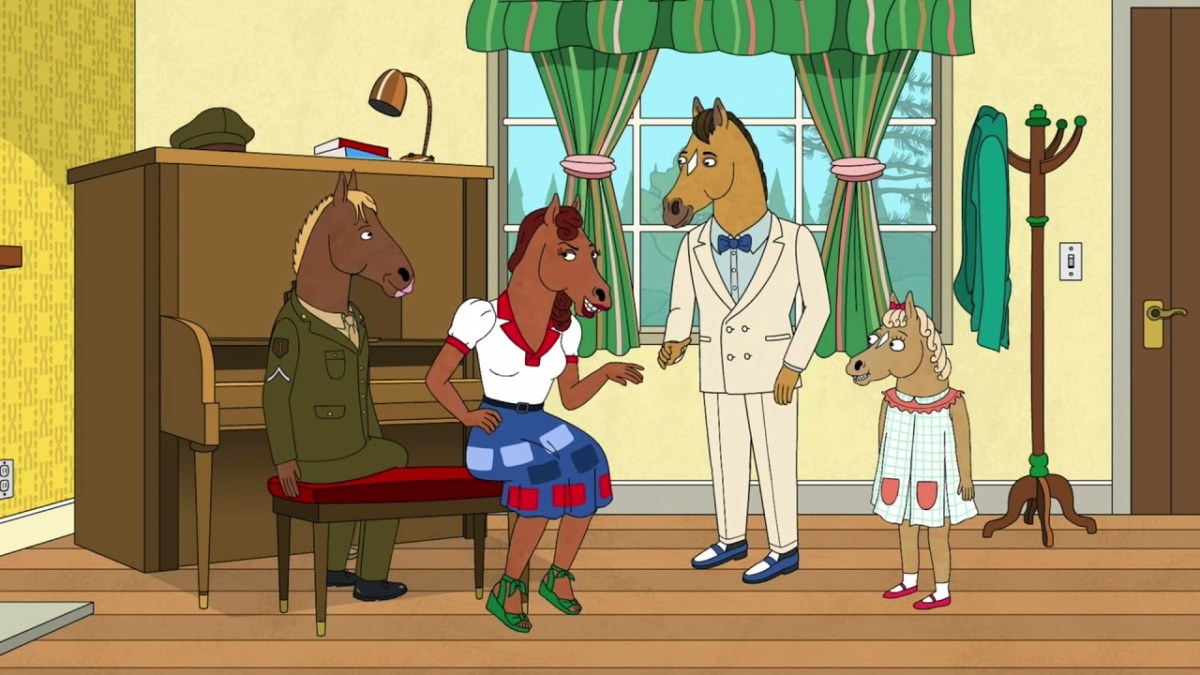
Every awful person can probably be explained by an awful family. Yes, that’s a pretty broad generalization, but at least in the case of BoJack’s family history, it checks out.
This episode examines Beatrice’s childhood, with a seemingly idyllic family that quickly devolves into a horror story. Misogyny, patriarchy, lobotomy…this episode has generational trauma up the wazoo, and it’s perfectly paralleled between BoJack and his grandmother through vignettes of the home and town they both dwelled in.
Stupid Piece Of Sh*t
If you’ve never had a horrendously abusive internal monologue, then you’re probably one of the very lucky few who’s led a charmed life. Unfortunately for the rest of us, including BoJack, there’s probably been at least one period in our lives where our thoughts have ruled us—and not for the better.
This episode takes us into the mind of BoJack Horseman, showing us how his thought process tends to devolve throughout the day. In particular, he’s a spiraling mess of self-loathing after his aging mother moves in with him temporarily, since her very presence is a huge trigger for him. He goes through all these terrible thoughts about terrible things he’s done, and terrible things that have been done to him, but the heartwarming/breaking conclusion of the episode comes when Hollyhock reveals she’s had these thoughts, too. And instead of telling her the truth, which is that they never go away, Boj lies and tells her they will, eventually. He only did so because he loves her.
Oh, Boj.
Time’s Arrow
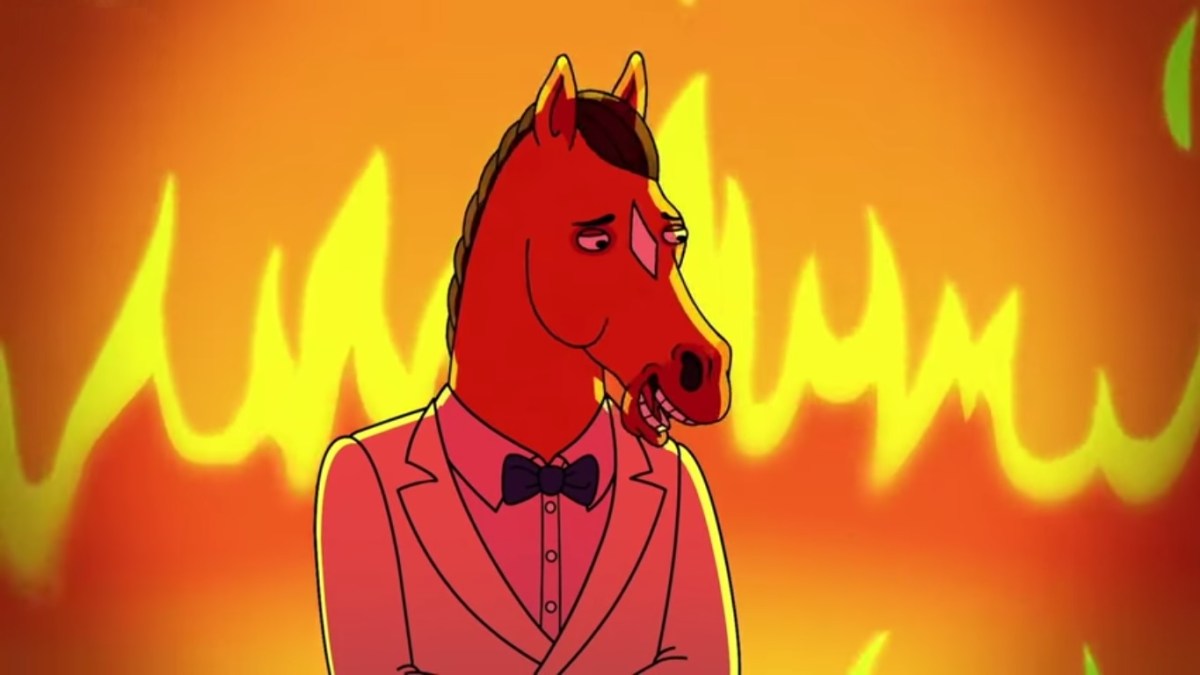
Hooray, more generational trauma! This time, even darker, believe it or not.
As Beatrice’s mind continues to suffer from an unspecified affliction, her memories begin to flash before her eyes and replace her reality. As viewers, we begin to see clearly why she is the way she is, how she suffered at the hands of both her father and her eventual partner, Butterscotch.
Her life was truly mired in suffering and lost dreams, which she coped with by becoming a hard-hearted, bitter shell of the bright and optimistic young woman she used to be. It does not excuse how she treated BoJack, but it explains quite a bit. And in a brief moment of clarity, where she worries about her new location in a nursing home, BoJack offers a rare moment of empathy by lying to her: he tells her she’s back at the lake, eating ice cream.
The real knife twist is that she lies, too, by claiming the ice cream is delicious. Her villain of a father never let her eat any ice cream. It was just a hopeful delusion that she knew what it tasted like.
Damn this show.
The Dog Days Are Over
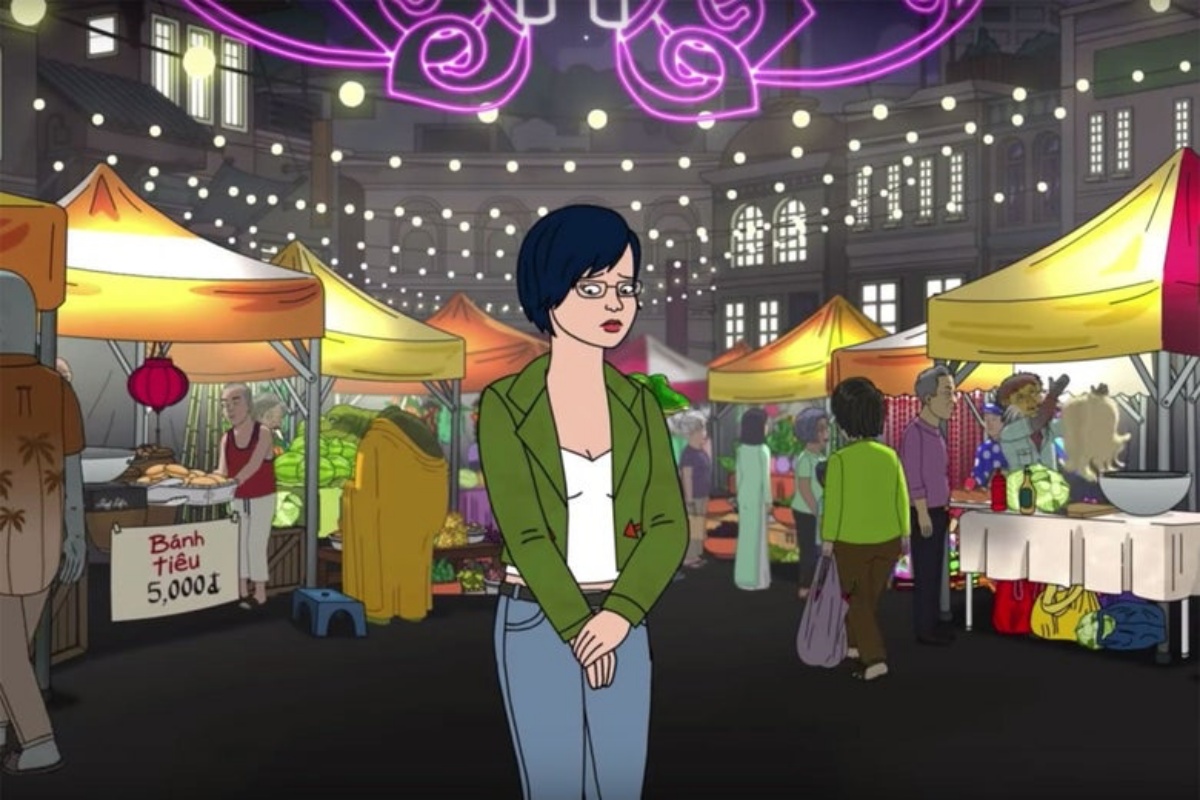
Following her divorce, Diane decides that she needs to get in touch with her roots, and decides to travel alone to Vietnam. This episode hits in a number of ways, especially for young women from immigrant families: those feelings of loneliness and alienation, both from your relationships and your heritage, can really make you desperate for any form of connection at all.
Ultimately, the message is a good, real one. Diane learns that she can survive alone, for as long as she needs to. And it will be painful, and often is, but she now understands that, until she finds her people (and her person), she is enough as she is.
Free Churro
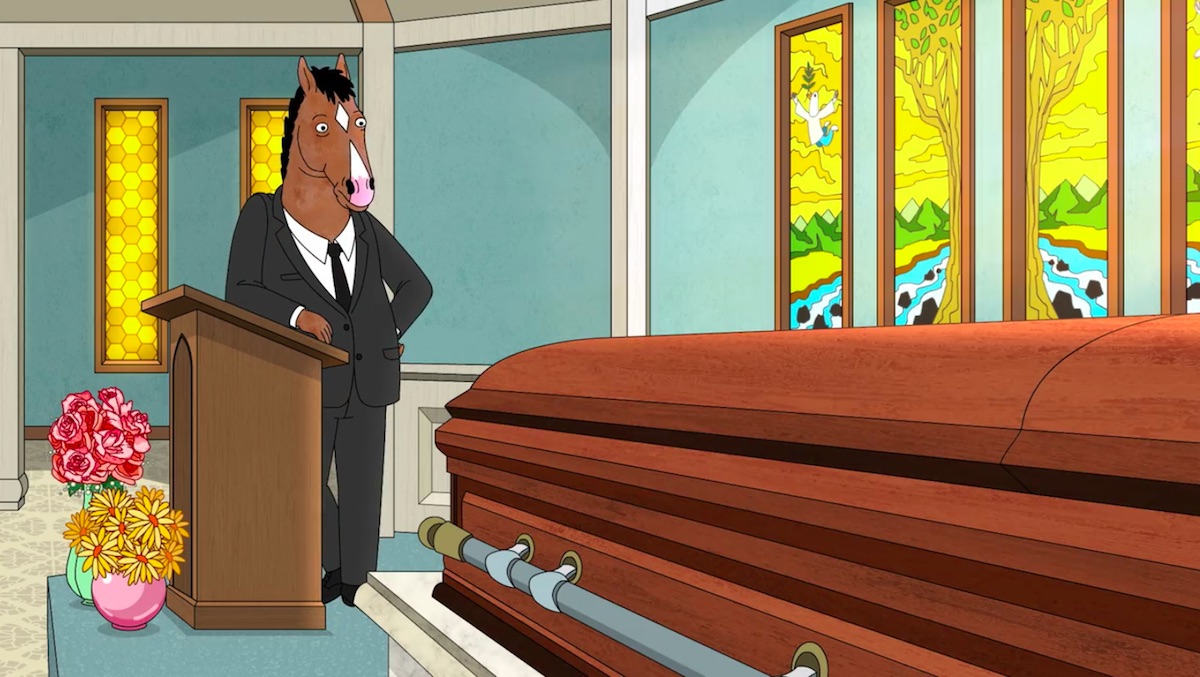
I almost wish this episode didn’t end on a gag, but it had to, right? BoJack delivers this incredibly rich, emotional eulogy that lasts an entire episode, all about his mother and his life and their shared lives together, and in the end, he isn’t even at the right service. The message is clear: Beatrice wrecked him to kingdom come, but in the end, his selfishness and obliviousness is his own fault.
How long do we mourn the mistakes of our parents? How are we supposed to cope with the things they’ve left us? These are questions we all have to answer ourselves, and it’s a topic seldom handled with as much grace and realness as this episode conveys. Of course, this makes this episode yet another that’s hard to stomach on a rewatch.
Good Damage
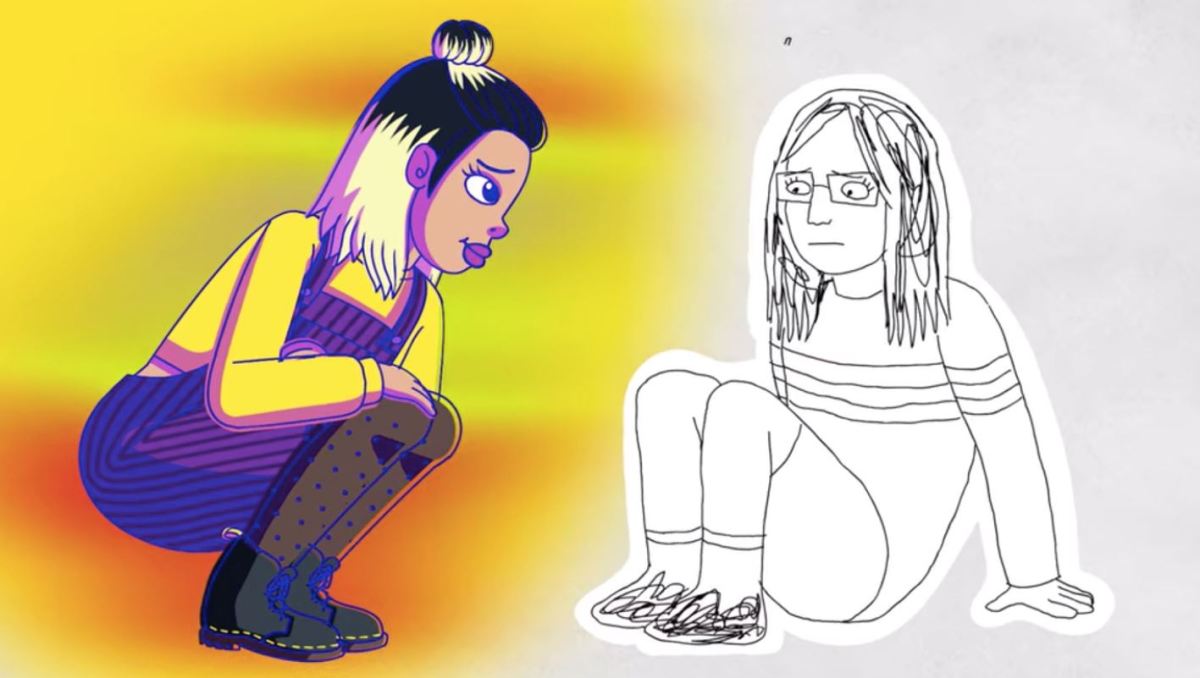
As a writer, this episode really, truly struck me in a way that few other stories about “writing” have done. Because Diane’s internal monologue is just…god, it’s so real. We feel like, if we can’t put our traumas into our writing, then what were they good for? Diane finds herself drawn more and more to a fun, lighthearted story about a teenage detective, but feels like she’s not allowed to explore that story, because it isn’t what she feels like she should write.
But ultimately, it’s what sets her free. Realizing that there is no such thing as “good baggage” helps her find the worth in any story she decides to write. And in turn, she ends up helping all the little girls like her, not by giving them a taste of what they already know, but a glimpse into something that actually brings them joy.
The View From Halfway Down
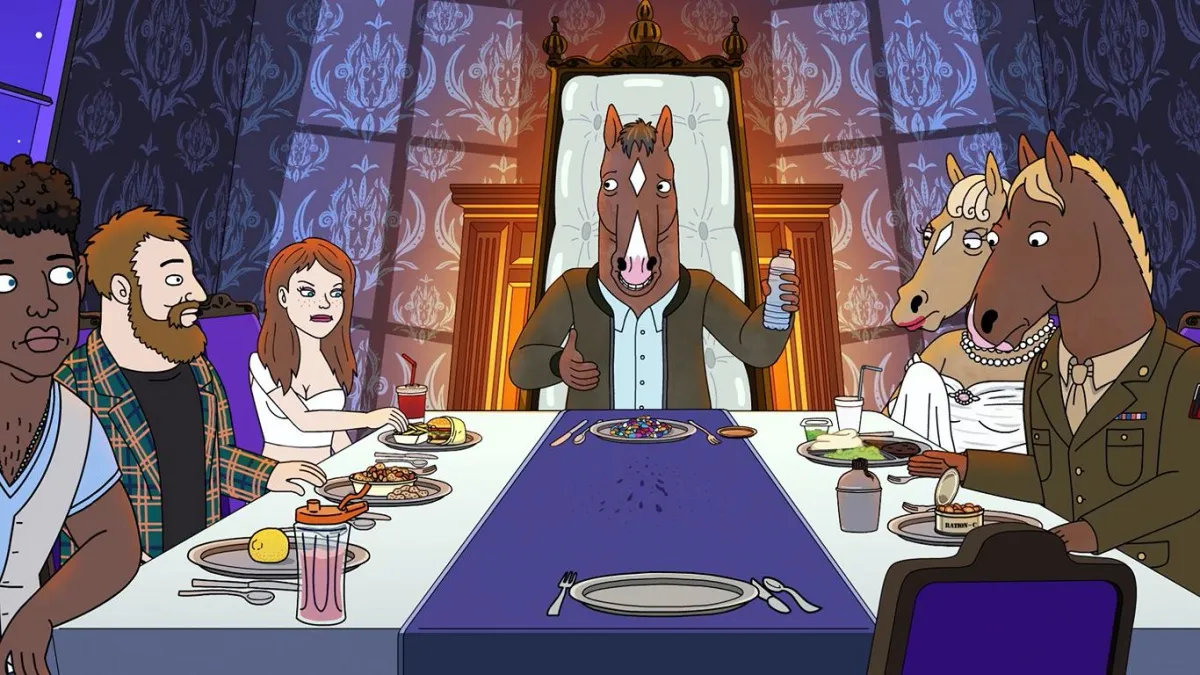
Alright, here it is. The MOST difficult episode to rewatch. The most heartwrenching, darkest, unbelievably soul-sucking episode in the series. Because BoJack is LITERALLY dying in this one.
What we see is his brain preparing him for shutdown, and may I just say, I think this episode is the best portrayal of a person’s last mental moments that has ever been put to screen. It’s claustrophobic and weird, insanely unsettling, and has an element of closure and finality to it that made many viewers wish it had been the last episode in the series.
Nice While It Lasted
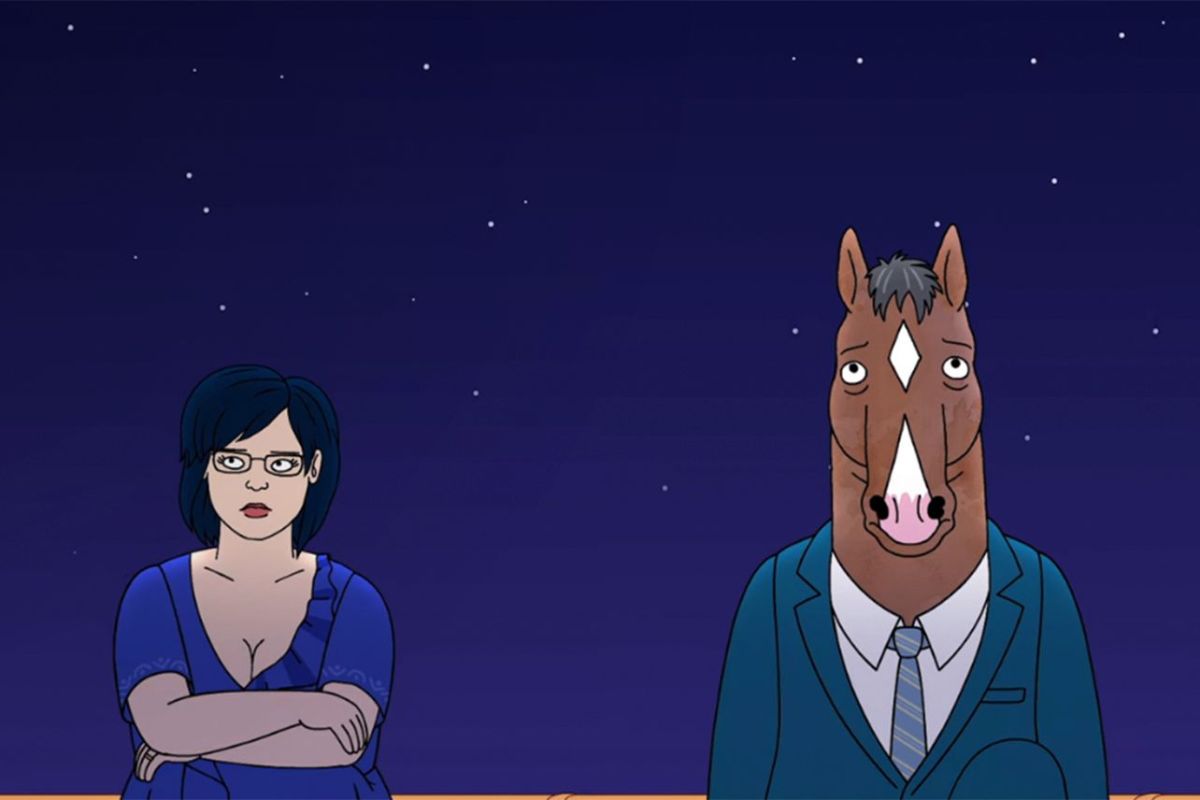
Part of why people disliked this last episode is because, well…how do you tie up a series that’s so riddled with misery and grief, and have the gall to do so with hope?
It’s as Diane says: “Sometimes, life’s a bitch, and you keep on living.”
I think a lot of people struggle with the idea that, no matter what you do or what happens to you, life will keep on moving, and eventually, the things you’ve done stop mattering quite as much. Much will change, but you’ll keep living, and the beauty of an ending like this is that BoJack ends up like all of us: living, in spite of it all. He’s done awful things. He’s lost so much because of it, including Hollyhock and Diane. But the world still turns. Princess Carolyn is marrying a man worthy of her, who will be a good father to her daughter. Todd is in a good place in his hectic little life. Diane is moving on, and becoming the writer she’s always wanted to be. And BoJack is finally dealing with the consequence of his actions, which will ultimately set him free.
It might feel like an abrupt ending to such an emotionally charged series, but it’s kind of perfect, too.
What did we miss?
In a series as remarkable as this one, it’s hard to pick any episodes that are definitively “better” than any other, so I’m sure I left out some that deserve mentioning. Leave a comment letting us know which episodes you consider the best in the series—or just the ones you like the most, for whatever reason.
Lastly, we’ll leave you with what the Runner Monkey had to say to BoJack, one of my favorite quotes ever (and with Courtney Barnett playing in the background, no less!):
“It gets easier. Every day, it gets a little easier. But you gotta do it every day. That’s the hard part. But it does get easier.”
(Featured Image: Netflix)
Have a tip we should know? [email protected]
